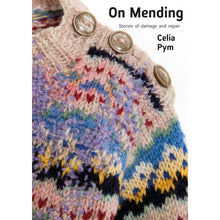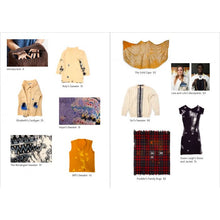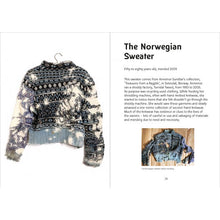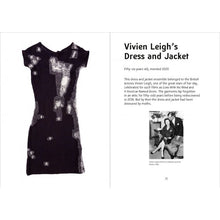
Living in London, the artist Celia Pym has been delving into the realms of damage and repair within textiles since 2007. Her expertise spans working not only with garments belonging to individuals but also delving into museum archives. From moth holes to incidents involving fire, Pym has accumulated extensive experience in the narratives of damage.
In the context of textiles, the language of mending extends beyond the physical realm of garments to the body itself. The act of repairing is not just about garments but also about the body healing after illness or injury. Pym is intrigued by the diverse manifestations of damage and how the process of repair directs attention to the areas where fabric naturally wears down and becomes thin.
The narratives she encounters are personal tales documenting the intimate harm inflicted on clothing through everyday use, drawing parallels with the consequential wear and tear on the human body. Pym's approach to mending goes beyond mere replacement or reconstruction. Instead, it involves meticulous work that gradually enhances and improves. This method suggests a gradual and unhurried process of recovery or transformation.
Within the realm of textiles, the act of mending addresses wear and tear, thinning cloth, or accidental damage by building upon existing fabric. It involves anchoring threads and yarn into the robust healthy fabric, filling in holes, and reinforcing weakened areas. According to Pym, "Darning is small acts of care" that require paying close attention to detail.
Quickthorn specializes in publishing books that emphasize craftsmanship and personal empowerment. The focus on making is rooted in the belief that engaging in the act of creation enables individuals to become more self-sufficient and take charge of their consumption habits.
The process of making, particularly with one's own hands, is viewed as a reflective journey. It encourages individuals to slow down in the midst of life's fast pace, fostering patience and the understanding that quality outcomes take time to materialize. The act of making brings immense joy, allowing one to craft something unique—an tangible testament to the investment of time and effort.
In alignment with a commitment to environmental responsibility, Quickthorn has undertaken research to find innovative ways to minimize its ecological footprint. This includes prioritizing local suppliers and printers, opting for recyclable packaging, and adopting a cellulose lamination process for book finishing that is entirely biodegradable and compostable.







